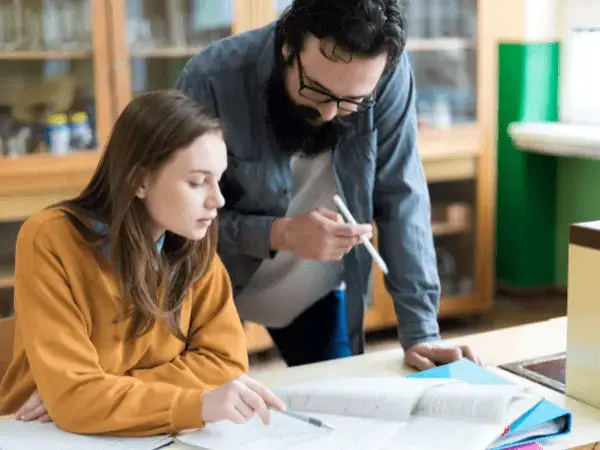Are you looking for the Classworks Special Education program from TouchMath? Click here to go to their site.
Formative assessment is the checkup your students need to stay on track. If done frequently, teachers benefit from the knowledge of adjusting teaching practices to the needs of their students. Keep reading to get the lowdown on this essential teaching and learning practice.

The definition of formative assessment has been refined many times throughout the years. Formative assessment is a deliberate and continuing practice teachers use to measure student learning. This practice uses evidence and data to inform instructional decisions. Students should be a part of the learning process to take ownership of their learning. Formative assessment should include:
While formative assessment tools happens frequently, summative assessment happens at the end of a unit of study. Summative assessment measures learning after it has been completed. There is typically a standardization of assessment (i.e. exams) and measures a collection of learning goals.
Both formative and summative assessments should go hand in hand. This is because formative assessment ensures that summative assessment will go successfully. Formative assessment allows teachers to check in frequently as learning progresses so that teaching can be adjusted.


Formative assessment ensures successful summative assessment. Frequent check-ins with your students allow you to know what parts of your teaching are successful. This will allow you to make many adjustments before a large test occurs.

There are many ways to incorporate formative assessment into your everyday classroom routine.
One of the best ways to make sure you are doing frequent formative assessment is to keep it informal. If it’s simple, you’re bound to perform formative assessment more frequently. Simple questions to gauge learning, think-pair-share, and even thumbs up from the class can help you check in quickly for understanding.

Many teachers like to use bellwork as their daily formative assessment. Bellwork can become a great routine for checking in with your students. Just give students 1-3 questions from your previous lesson and check in with their learning.

Exit tickets are the perfect way to get immediate feedback and data from your daily lesson. You can even digitize your exit tickets and enable self-grading. From there, you can adjust your lesson for the next day.
Homework is the perfect time for students to reflect on what they are learning. They have the space and independence to practice concepts they learn in class. Classwork.com makes it possible for homework to be online, paperless, and self-graded.
There’s some debate about grading formative assessment tools, but quizzes can be a good measure of student learning. Short and frequent quizzes allow you to determine what students have learned.
Reading comprehension is a complex skill. It can be hard to measure how students are progressing through individual skills. Classwork.com breaks down how teachers use our app to test reading comprehension each step of the way.
What is the defining feature of effective student feedback? We’ve listed 8 examples that will take your feedback game to the next level!
In middle schools, testing is everywhere, but it’s often more challenging to find good examples of effective assessment. Educators classify assessment into two broad categories: formative and summative. We’ll explore the difference between formative and summative assessment with examples.
The key to a Thinking Classroom is to focus on the process of learning rather than simply the acquisition of knowledge. This means that teachers must create opportunities for students to think critically, solve problems, and reflect on their learning.
We’ve rounded up the 14 practices of a Thinking Classroom.

Don’t reinvent the wheel for your formative assessments. Classwork.com simplifies your planning process of creating online formative assessments from scratch or converting existing materials you already use in your classroom. It’s simple: